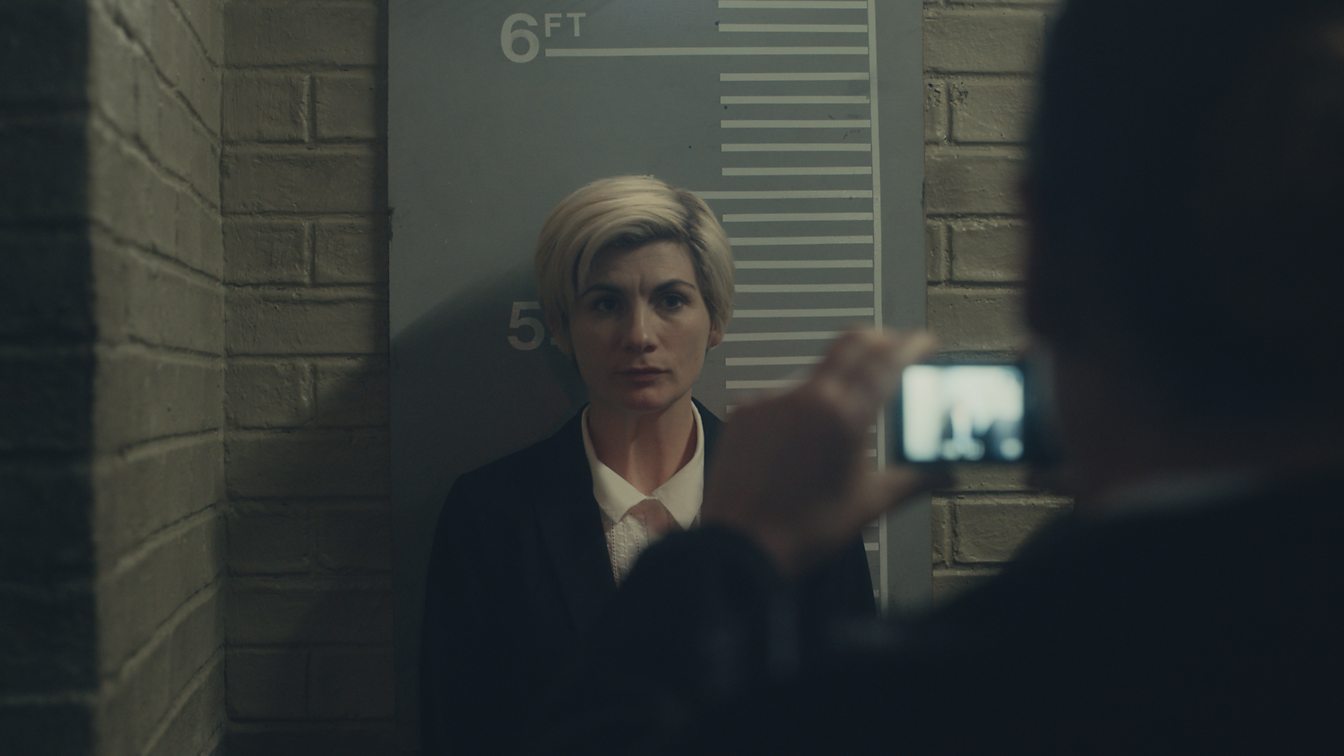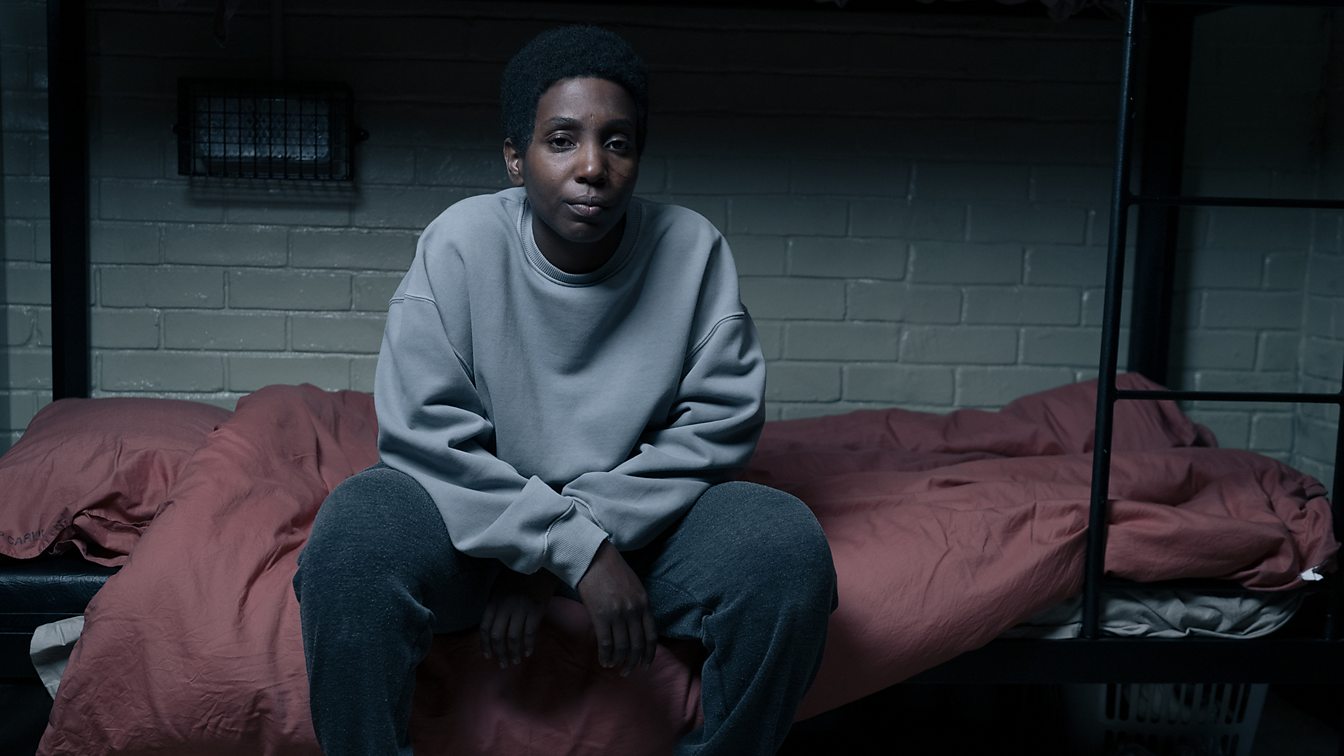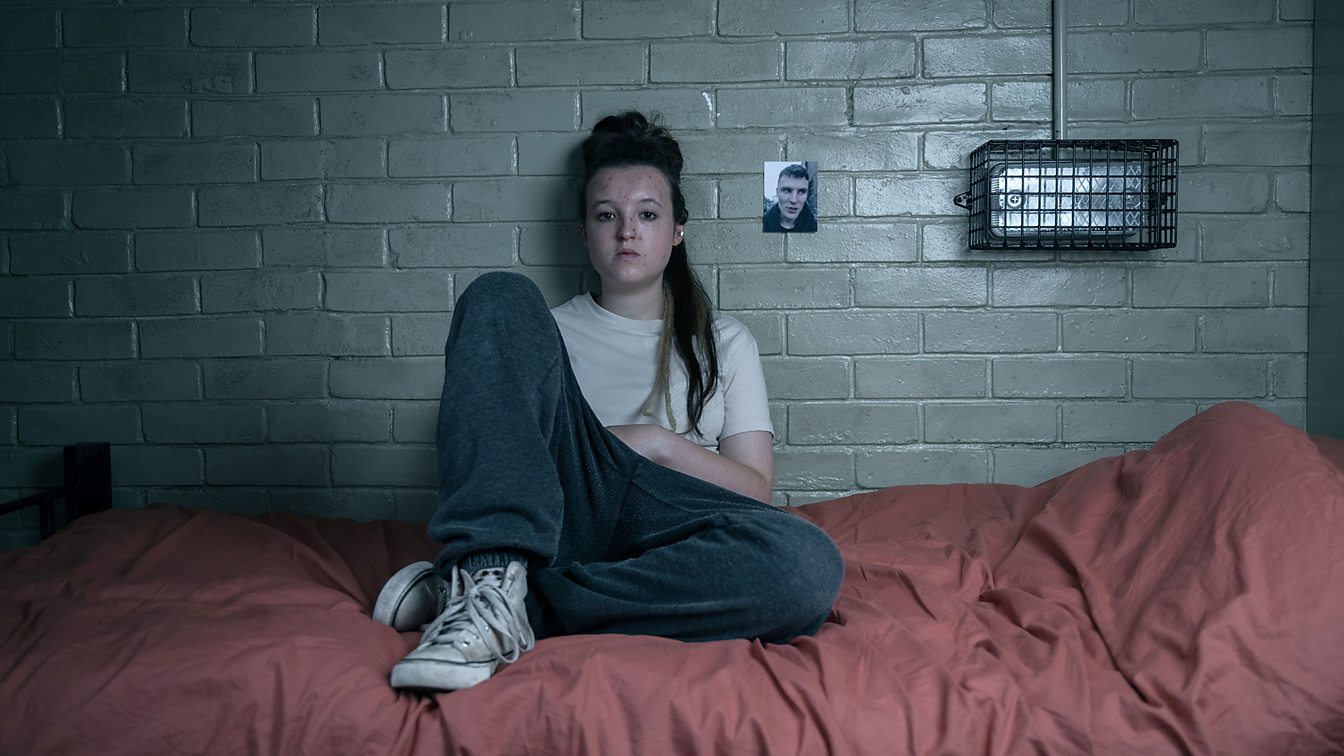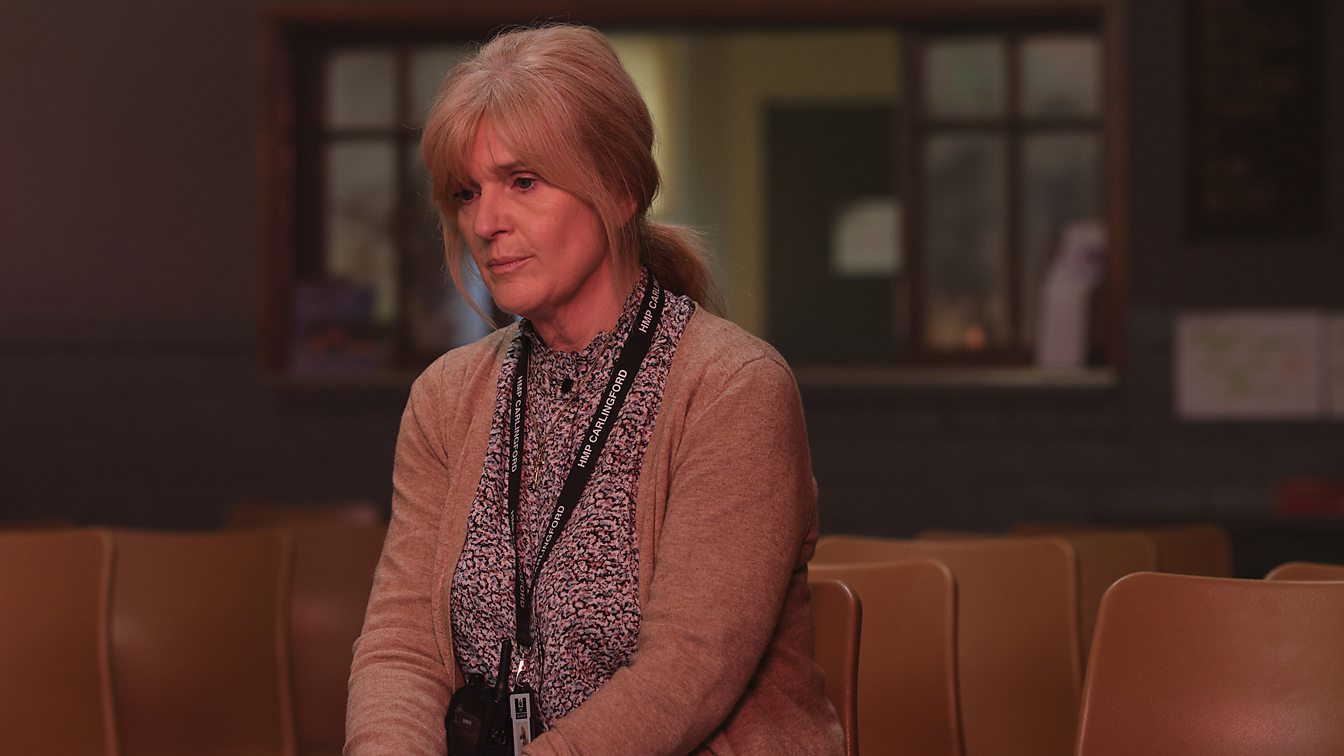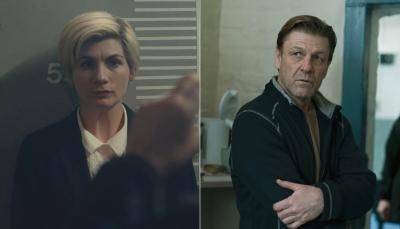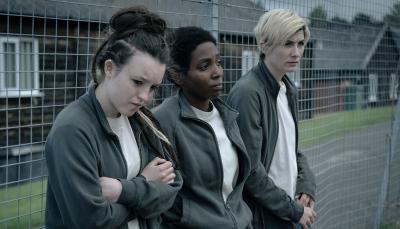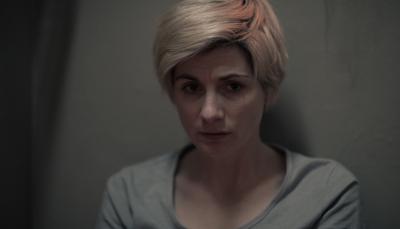'Time' Season 2 is Damn Near Painful Perfection
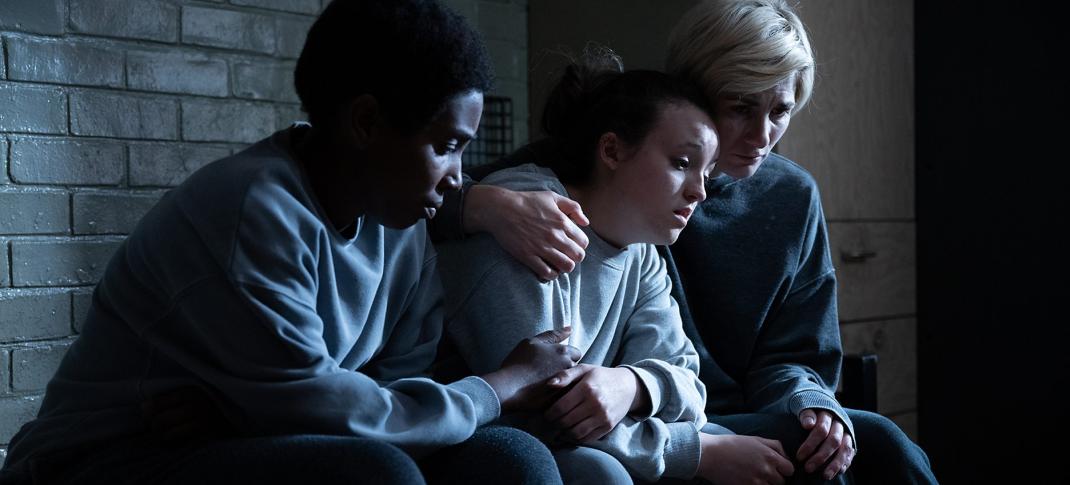
Tamara Lawrance as Abi Cochrane, Bella Ramsey as Kelsey Morgan, and Jodie Whittaker as Orla O'Riordan in 'Time' Season 2
BBC/BritBox
The gripping BBC prison drama Time drew critical acclaim for its first season in 2021. Eight months and two BAFTAs later, the show was renewed for a second season despite originally being planned as a close-ended miniseries. Despite the promise of an anthology series and series creator Jimmy McGovern’s (Moving On, Broken) commitment to the principle of showing life behind bars as honestly as possible, could a second season capture the buzz and profundity of the first?
The answer is a resounding yes. Time’s second season follows an entirely different storyline with an all-new cast (with one exception), taking place at a women’s prison and starring Jodie Whittaker (Doctor Who), Tamara Lawrence (The Long Song), and Bella Ramsey (The Last of Us). All three play women who arrive in prison on the same day, each with a unique relationship to motherhood that complicates her time in the criminal justice system. Their stories are not only unique in the world of the show — they’re unique in the landscape of television and media as a whole.
Season 2 portrays womanhood, motherhood, and incarceration with a refreshing nuance and lack of stigma or sensationalism. McGovern has hit it out of the park again, in no small part thanks to the co-writer he brought on for this season, Helen Black (Death in Paradise, Grantchester), who authentically captures the specific struggle, humiliation, community, and joy that women can experience in prison.
While Season 1 positions prison as an occasionally flawed system that nevertheless allows the protagonist to atone for his crime, Season 2 portrays the injustices — large and small — that incarcerated people, especially women, face. The series calls unflinching attention to everyday indignities, like Whittaker’s character not having access to tampons and only being allowed two approved phone numbers when her children are in separate foster homes. There are also moments of levity that come from the incarcerated women uplifting each other like an impromptu dance party to celebrate Ramsey’s character’s successful ultrasound.
American audiences might be tempted to draw comparisons between Time and the American prison drama Orange is the New Black. Both are set in a women’s prison, but that’s about where the similarities begin and end. Time is introspective and quiet (as quiet as a prison drama can be, at least), and its subjects are rarely exploited for shock value and never sexualized. The heart of the story comes from the three protagonists. Each actor is at the top of their game throughout the show’s three episodes. All three characters are put in some of the most challenging situations imaginable and forced to make unmakeable choices. Their flaws make them some of the most compelling characters on television today.
Whittaker is at her best when she is loud and livid, traits too often withheld from female characters on TV. She plays Orla, a mother battling the toll incarceration takes on her children. Her story is the focal point of the series. As a woman who never expected to be imprisoned, Orla is the most obvious audience identification character. Whittaker is the perfect choice to anchor the show. Throughout the season, she constantly takes one step forward and two steps back in a way that is narratively frustrating but painfully realistic, deftly written, and spectacularly acted.
Lawrence is stunning in her quietest moments as Abi, a stoic woman serving a life sentence for the death of her infant. Her character is cemented immediately in an impassioned, hushed speech to the prison’s chaplain confronting her about why she chose this career path. Her unflappable and competent response to a medical emergency is a highlight of the season. Lawrence was dealt possibly the most difficult role of the three, with her character shunned by all the other women and reticent to reveal her full story until the final episode. It’s well worth the wait, and her story is the one that most demands a rewatch to doubly appreciate her character’s arc.
Ramsey dazzles, period. All. The. Time. The actor became world famous at a young age in Game of Thrones but seems to have skipped the child actor phase almost wholesale. Ramsey plays Kels, a pregnant teen working to overcome drug addiction. They have the subtlety, nuance, and range of an actor twice their age, yet they portray Kels as painfully young and naive. Their performance is so believable that, at times, they feel like the only real person dropped into a cast of fictional characters.
Kels feels like every teenager you’ve ever known, and yet she is also faced with some of the most mature and life-changing decisions of any character. While Whittaker’s character Orla has the most to lose from incarceration, Kels arguably has the most to gain. Whittaker and Ramsey play off each other delightfully, creating an incredibly loaded but tender friendship between Orla and Kels.
The main cast is bolstered by a stellar ensemble. Among the most memorable are a woman whose world turns upside down after receiving a letter from her estranged son, a woman who turns to violence because her lover was moved to another prison, and a prison guard who struggles to hide her maternal protectiveness for Kels. The only character to carry over from Season 1 is Mary-Louise (Siobhan Finneran), a chaplain trying to do the best for the women despite the limits of the prison system. Her calm demeanor and strong moral compass make it clear why she was the perfect choice to return. Any one of these women could have carried their own season of the show.
The only element that was missing from the season was a closer examination of how race, gender, and parenthood intersect in the criminal justice system. Abi is the only Black woman in the main cast, but viewers can only speculate how her race could have exacerbated the struggles she faced in the criminal justice system and her interpersonal relationships with the other women. It was a glaring missed opportunity in a show that is otherwise not afraid to dig deeper.
In some shows that follow multiple plot lines, a clear favorite or most compelling storyline emerges, making the other storylines feel like filler. But in Time, there’s no one standout because every moment and every performance is that good. The subject matter makes it a tough watch at times, but it’s entirely worthwhile for the caliber of the storytelling. These characters and their stories will stick with you long after the credits roll. If Season 1 was hailed as a near-perfect drama, Season 2 proves it's possible to improve on perfection.
Seasons 1 and 2 of Time are streaming now on BritBox.

